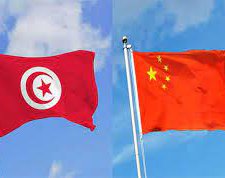The Observatoire Tunisien de l'Economie (OTE), as reported by Footwearbiz, says that the worsening of trade deficits with China and Turkey is having a serious impact on the country's leather and textile sectors. Worsening trade deficit with China and Turkey contributes to the hemorrhage of foreign exchange reserves and severely threatens local production according to OTE [bilaterals.org]
The Observatory recalled that Tunisia's trade deficit with China reached 6325.5 million dinars (MD) in 2021, compared to 5740 MD in 2019. The one with Turkey stood at 2655.9 MD in 2021, against 2,412 MD in 2019.
And the Observatory points out that the dominance of European Union countries over Tunisian imports continues to decrease in favor of China, which currently occupies third place after Italy and France, and Turkey, which occupies seventh place after Germany (5th) and Algeria (6th).
"The advanced grades occupied by China and Turkey in domestic imports pose a threat to some sectors that are losing more and more ground in the local market. The textile and leather sectors have suffered colossal losses since the signing of the free trade agreement with Turkey that caused the closure of about 7 thousand shoe factories".
Citing data from the Central Bank of Tunisia, the Observatory also considered that the trade balance deficit, fueled largely by the abysmal deficit recorded with these two countries, strongly contributes to the deterioration of foreign exchange reserves that currently cover 136 days of imports, down 6% compared to 2020 (162 days of import at the end of December 2020).
It considers that the intention to revise the free trade agreement with Turkey announced by the Department of Commerce as well as Article 57 of the 2022 Finance Law which provides for a revision of the customs duties collected on about 3,000 imported products of industrial and agricultural products, constitute a first step towards rationalizing imports, protecting local products and reducing the hemorrhage of foreign exchange reserves.
However, OTE has questioned the degree of commitment of the Ministry of Trade and Export Development to review the trade agreements that disadvantage Tunisia, which is a sine qua non for rationalizing the use of foreign exchange and protecting the national economic fabric.



